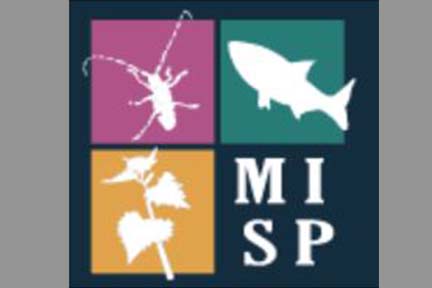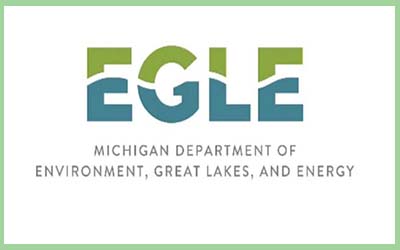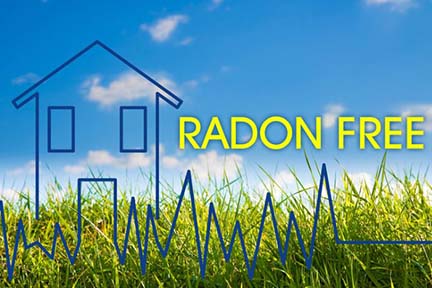FOR IMMEDIATE RELEASE
Jan. 4, 2023
Jill A. Greenberg, EGLE spokesperson, GreenbergJ@Michigan.gov, 517-897-4965
EGLE Media Office, EGLE-assist@Michigan.gov, 517-284-9278
$2.9 million in EGLE brownfield funding to help redevelop contaminated sites in metro Detroit
The Michigan Department of Environment, Great Lakes, and Energy (EGLE) has awarded $2.2 million in brownfield grants and loans and approved $730,000 in brownfield tax increment financing for redevelopment of three contaminated properties in metro Detroit. Overall, in 2022 EGLE provided $20.7 million in brownfield funding to 67 projects statewide.
Plans for the projects include preservation of two historic buildings and the addition of new commercial establishments at the former Eloise Psychiatric Hospital in Westland; a new multi-tenant affordable housing apartment complex in Ferndale; and a redevelopment that will house commercial, office and residential space in Northville.
More than half of EGLE’s budget each year flows into Michigan communities through grants, loans and other spending that supports local projects, protects public health and the environment, ultimately creating economic growth and jobs for Michigan workers. Redevelopment of brownfields – vacant or abandoned properties with known or suspected contamination – increases property values both on the revitalized site and on other nearby properties.
EGLE’s Remediation and Redevelopment Division provides financial and technical assistance including grants, loans, tax increment financing and free site assessments to facilitate the redevelopment of brownfield properties.
Former Eloise Psychiatric Hospital in Westland
The city of Westland was awarded a $695,000 EGLE brownfield grant to address existing contamination at the former Eloise Psychiatric Hospital and ensure the site’s safe reuse. Of this funding, $225,000 comes from the 2023 brownfield grant budget. Westland has partnered with 30712 Michigan Avenue LLC to redevelop the hospital as part of a multi-phase project.
The completed project will include removal of several blighted structures, preservation of two historic structures and the addition of new commercial establishments, including a haunted attraction, hotel and restaurant/bar.
“We are very grateful to EGLE, the city of Westland and the State of Michigan for this grant. It will assist us in the redevelopment of this challenging project.” John G. Hambrick, managing member of 30712 Michigan Avenue LLC.
Petroleum-related compounds in soil and groundwater, likely attributable to former leaking underground storage tanks has complicated the redevelopment to date. The EGLE grant will help mitigate potential risks related to the observed contamination by facilitating the excavation, transport and disposal of contaminated soil. The soil removal will serve to prevent subsurface contamination from impacting the site’s historic structures.
The $4 million redevelopment project is expected to create 50-100 full-time jobs, 75-100 seasonal jobs and a $2.5 million increase in the property’s taxable value.
(EGLE site contact: Abbie Hanson, Brownfield Coordinator, HansonA2@Michigan.gov, 906-202-1285)
LGBTQ+ elder housing development in Ferndale
Full Circle Communities will demolish existing vacant structures and construct The Shephard House, a new four-story multi-tenant, affordable housing apartment complex. This project is made possible in part through a $700,000 brownfield grant EGLE awarded to the city of Ferndale to address existing environmental concerns.
The project strives to create an affirmative and inclusive environment for Lesbian, Gay, Bisexual, Transgender, Queer or Questioning (LGBTQ+) elders that would allow adults to age in place within Ferndale.
The development will contain 53 residential apartments (mostly one bedroom and several two bedroom), with a barrier-free design, energy efficient appliances, a community room, and pocket park on East 9 Mile Road in Ferndale, Michigan. The project is expected to be completed in the spring of 2024.
Ferndale will use the grant to remove contaminated soil to alleviate environmental risks attributed to past uses of the property. Soil and groundwater were believed to be contaminated with volatiles and metals as a result of the historic uses of the property including auto repair, machine sales and metal fabrication.
The building is anticipated to be National Green Building Standard (NGBS) certified.
The city is providing tax incentives in the form of payment in lieu of taxes to the developer to incentivize the redevelopment, which provides the project an estimated $3.5 million in savings over 40 years and the Ferndale Housing Commission has committed to provide eight Section 8 project-based vouchers for the project.
(EGLE site contact: Michelle Bakun, Brownfield Coordinator, BakunM@Michigan.gov, 586-233-3408)
456 Cady Street in Northville
The development team at 456 Cady LLC will build a new mixed-use residential and commercial development on a former industrial property at the eastern gateway to the city of Northville. This work is made possible through an $800,000 brownfield redevelopment grant presented by EGLE to the city of Northville to assist with addressing onsite environmental contamination.
The redevelopment will include demolishing existing structures and building a new three-story structure that will house commercial, office and residential apartment spaces. The 456 Cady Street development includes an investment of $25 million and is estimated to create 30 new full-time jobs upon completion of the development.
Northville will use the EGLE grant to address the site’s environmental contamination, including excavation and disposal of impacted soils onsite, and installation of barrier systems to prevent exposure to any residual contamination.
In addition to the grant, EGLE has also approved just over $730,000 in brownfield tax increment financing for environmental costs not covered under the grant According to the assessment data collected by the developer and their consultants, soil and groundwater were likely contaminated by the sites historic industrial operations which included a foundry, machine shops and a mill pond associated with an adjacent industrial site. Impacted fill soils were also found throughout the property.
(EGLE site contact: Holden Branch, EGLE Brownfield Coordinator, BranchH1@Michigan.gov, 517-331-0993) |








